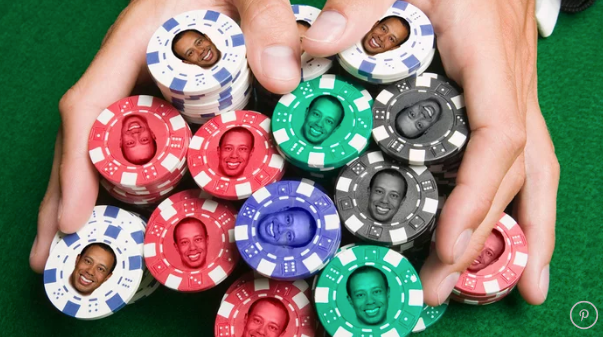For the Supreme Court, the matter of sports gambling has been settled. But for the sports world, golf included, questions remain.
What we know for now is this: In a 6-3 decision Monday, the highest court in the land lifted a federal law that prohibits sports gambling in most states. By striking down the Professional and Amateur Sports Protection Act, the justices’ decision clears the way for states to legalize sports gambling. As many as 32 states are expected to do so within five years.
Like many other interested observers, the PGA Tour saw this decision coming and has been forthright about its stance. Just last month, Tour commissioner Jay Monahan said the Tour supported the legalization of sports betting, citing, among other factors, the potential financial upsides.
Monahan, though, was speaking broadly, not getting down to the nitty-gritty. And it’s the nitty-gritty that will determine what impact the court’s decision will have on golf.
 Few things in life are certain. But lots of things are likely. To borrow language from bookie vernacular, here are six locks for how legalized sports betting will impact the golf world.
Few things in life are certain. But lots of things are likely. To borrow language from bookie vernacular, here are six locks for how legalized sports betting will impact the golf world.
1. Greater Fan Engagement
Based on data from across the sports world — from the NFL to the Kentucky Derby and beyond — we hold this truth to be self-evident: Gambling fuels fan interest. Will it get more people on the course? Maybe. But there’s little doubt that it will get more people watching. Call it a different way to “grow the game.”
2. More Money for the Tour
In his statement in support of legalized gambling, Monahan made clear that the Tour planned to profit. One way will be by selling its ShotLink data to gambling interests. Another potential source of revenue would be for the Tour to collect an “integrity fee” — a surcharge of sorts for helping protect its competitions from shady influences. The number Monahan tossed out was 1 percent of the total “handle” of betting operators. Although golf betting today represents just a tiny fraction of the estimated $150 billion wagered illegally on sports in the United States every year, one percent of that tiny fraction would still represent a lot of dough.
3. New Ways to Watch
Gambling doesn’t just drive viewer interest. It also influences what there is to see. Witness all the NFL and college football programming devoted to fantasy play. In recent years, golf has been drifting in that direction, with a growing emphasis on instant scoreboard updates, video streaming and special coverage of featured groups. Expect that kind of coverage to proliferate, along with punditry that focuses on gambling-related action.
You can bet on this: Those guys on Golf Channel won’t just be analyzing Tiger’s swing. They’ll be telling you why Woods should or shouldn’t be the favorite in, say, a first-round matchup against Jordan Spieth.
[image:14138938]
4. A Zillion Ways to Wager
In a recent conversation with Jason Sobel of the Action Network, Tour execs Andy Levinson and David Miller discussed the prospect of gambling kiosks at Tour events. That seems like a no-brainer. But the possibilities stretch well beyond that. In the not-so-distant future, when you drop by the Quickie Mart to buy a lottery ticket, you’ll also be able to place a wager on who will win the Masters, for example. And don’t even get us started on all the options that will be available on your mobile device.
5. A Debate over What Kind of Wagers Should Be Offered
Although the Tour is firmly behind legalized sports betting, it’s not blind to the potential perils. One of the Tour’s worries is wagering on results with a negative outcome (wagering, for instance, on whether a certain player will miss the green with his or her next shot). That kind of action is susceptible to corruption, or at least the perception of it. Levinson has said that the Tour wouldn’t want bookmakers to offer lines based on negative outcomes. Fair enough. The question is, once legalized sports gambling gets up and running, will the Tour have the power to dictate what kind of lines bookmakers make?
6. A Growing Chorus of Gambling Critics
To hear the heads of various sports leagues tell it, legalization was all but preordained, the inevitable outgrowth of societal shifts. They also argue that legalization will be a good thing because it will allow for regulation, which in turn will help keep competitions clean. All of that is hogwash, critics say.
Consider the viewpoint of Les Bernal, national director of the advocacy group Stop Predatory Gambling. To understand the move toward legalization, Bernal says, all you have to do is follow the money and the powerful interests that stand to profit.

“The idea that this was inevitable is just absurd,” Bernal says. “There’s no grassroots movement in this country calling for greater access to sports gambling. This is not something the public is clamoring for. What does exist is a deceitful lobbying campaign funded by very powerful interests, all perpetuating the scam that legalized sports gambling will be good for everyone.”
Bernal’s fiercest opposition to gambling stems from the societal toll he says it takes through its corrosive influence on individuals, families and communities. But he also says that gambling is bad for sports as a whole. “Look at horseracing,” Bernal says. “It used to be the sport of kings. How did legalized gambling work out there?”
As for regulation limiting corruption, nonsense, says Bernal, who notes that countries with legalized sports gambling have hardly been immune, as evidenced by recent match-fixing scandals in English soccer and tennis, and Australian tennis. Even if golf avoids such stains, gamblers are a notoriously cynical bunch. So here’s something else you can wager on: At some point in the future, when a Tour pro collapses at a crucial moment, a cry will go out across the Twittersphere that the fix was in.
CORRECTION: A previous reference to an Australian cricket scandal has been fixed, as charges were later withdrawn.







